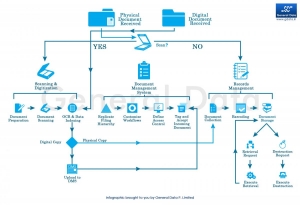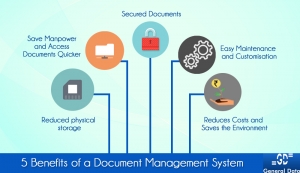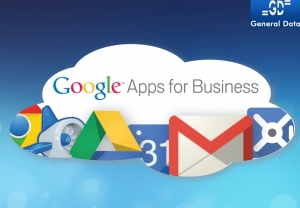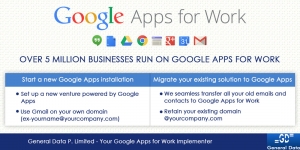
Like most companies, you probably have some form of paper records, stored either on-site, or in an off-site storage facility. While these paper records may be a necessary part of your business, if you need to find a specific record, searching through all of your files can be extremely time consuming. There is a better way to store that data; so retrieval becomes much easier and far more streamlined. Here’s how:
Identify where your paper documents are stored and in what condition.
Are your papers stored on-site? Off-site? Are they in good condition, or have they been damaged by time, water, or dust? As an information and records management company, we need to know the condition of your records before we can come up with a digitization plan.
Enlist us to collect your data in bulk.
Once you have identified the location of your physical records, let us collect them. We won’t just collect part of your files, we will retrieve all of them and move them to an easy-to-access location, so if you ever need the physical documents, you can access them without an issue.
We scan and organize it.
Once we have retrieved your documents, we scan them using a systematic and secure process, using our high-speed scanners.Your soft copies can then be indexed and hosted on a Document Management Solution (DMS), in a format that makes online retrieval straightforward and much quicker than searching through your physical files.
We store both the digital and physical documents in a secure location.
After all your data is digitized and archived, we store both the digital and physical documents securely – digital on world-class server & storage infrastructure and physical at our Records Management Facilities.

Why digitize and archive your critical data? Your most important data should be easy to find and easy to retrieve-this is far more difficult with physical documents. Digital storage and retrieval is better than even the best physical filing system. It saves you time and money, and you don't even have to do the scanning and organization. Our services make it easy to have instant access to your most critical data and eliminate the heavy real estate costs of storing your physical documents at your own location.
We get a lot of questions regarding what Information Management actually is and what are the different factors/components/processes related to it. So we created a handy, comprehensive infographic on the entire Information Management Process Flow, and how your physical and digital documents move from stage to stage when you subscribe to a complete Information Management Solution, which consists of:
- Document Scanning & Digitization
- Document Management Solution (DMS)
- Records Management
Here’s the flowchart:
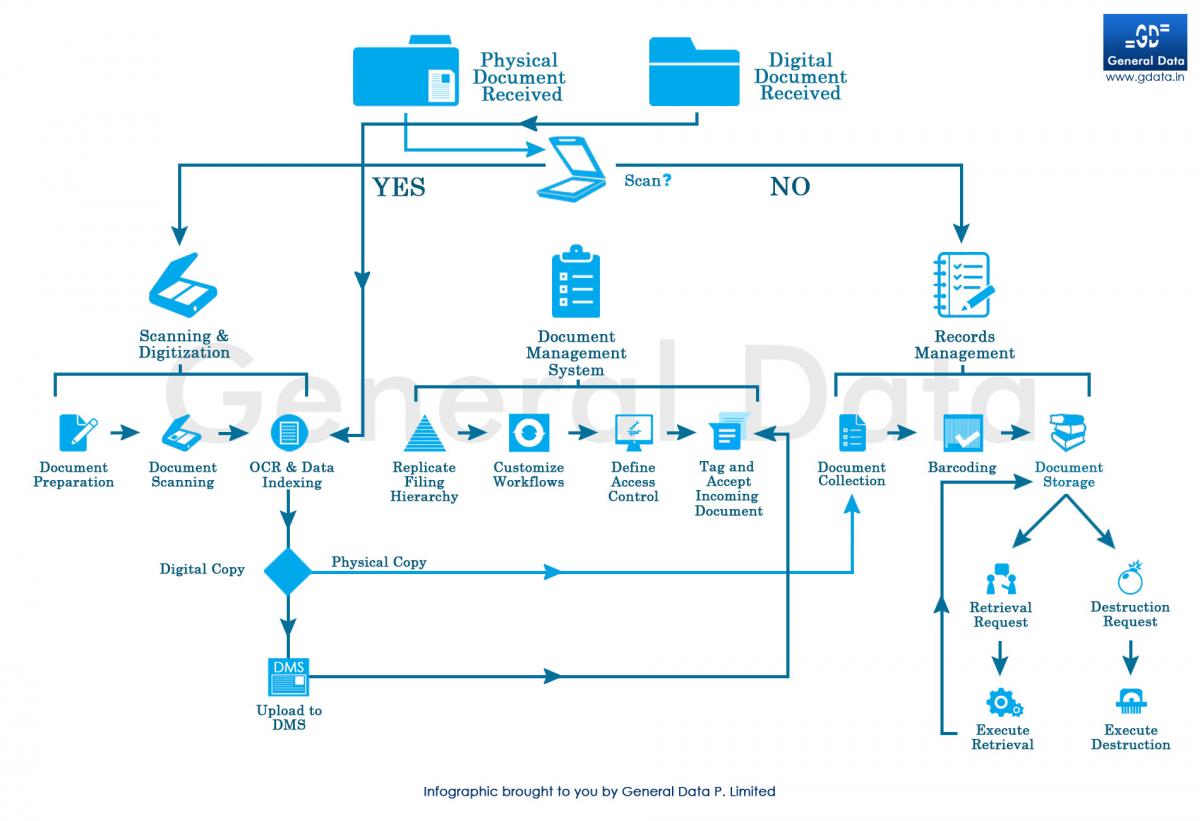
Of course, there are a lot of sub-processes that haven’t made it to the chart, but these are the main steps you’d find in any end-to-end information management service. If you would like to know more about how Information Management can help your business, do get in touch with us.
A Document Management System (DMS) is a software solution that stores data digitally saving your company valuable time, space and money.DMS software does not only assist users in the management of files and documents but also consists of a number of other business-related tools, including blogs-like notice boards to share information, case tracking, shared calendars, custom workflows and more.
A DMS isn’t a specialty, stand-alone business software. It simplifies and becomes intertwined with daily operations, digitizing unneeded paperwork and automating processes that otherwise unnecessarily reduce employee productivity. Since corporate data and documentation is ever growing, the sooner you adopt a DMS, the less legacy content you need to import into the system.
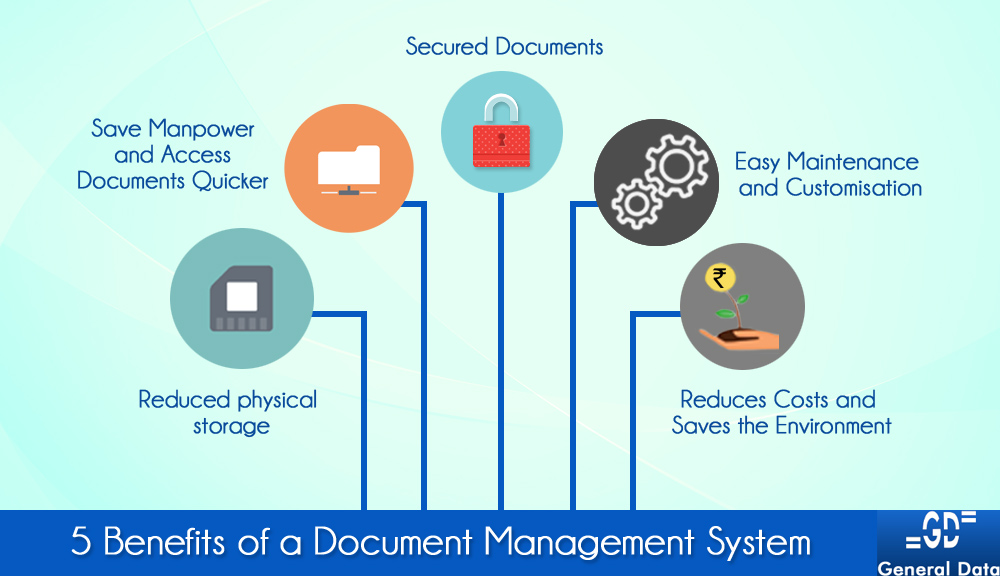
Let’s take a look at the five basic benefits of adopting DMS software for your organization/company:
Reduced physical storage:
Significantly reduce space used for document storage at your office – space that can be utilized for far more productive purposes. By switching to a DMS, you free up all this space by scanning and digitizing your documents. If you need to retain the physical documents for compliance or record keeping purposes, you can always enlist a records management service to store your documents for you at a significantly lower cost.
Reduces Costs and Saves the Environment:
Digital data saves the company lakhs or crores of rupees they might otherwise spend on printing/copying/scanning/faxing. Without proper information management policies, you can find the same document being printed many times over by different employees, resulting in unnecessary use of paper. Everybody can access the same document online, without any need for printouts, at the same time. Every office that initiates paper-saving policies contributes towards environmental responsibility and green initiatives.
Save Manpower and Access Documents Quicker:
Don’t you sometimes wish you could just Ctrl + F and find that document you so urgently need in a pile full of paperwork? With a DMS, that’s exactly what happens. You get instant access to your entire document repository. Search & index features are so powerful, you can find what you’re looking for based on a variety of criteria. You can also access your documents on the move from any mobile device. A DMS also helps you to link documents and invoices or other documents in an organised and easy to find manner. You don’t need somebody to go into the filing room and waste time whenever you need a document anymore.
Secured Documents:
When paper documents are shared, moved around from one department to another or transported, there is always the threat of sensitive information being misplaced or falling into the wrong hands.A Document Management System allows the company to configure user access rights and policies – on folder/directory/document level. These rights are further classified into read only/write only/full access, etc. – giving you granular control over information access. Powerful DMSs also have the very best data encryption standards – they’re very secure and resistant to cyber threats. Version Control allows you to make multiple versions of the same document and archive them, ensuring you never lose an original file or important document.
Easy Maintenance and Customisation:
Post installation, a good DMS will be easy to update and customize. SaaS-based DMSs should be auto-updated as and when new builds incorporating new features are released. On the customization front, the whole point of a DMS is to seamlessly integrate with your company’s workflows and modus operandi. The DMS should aid the type of work you do, and increase the speed at which you do it. To accomplish this, your document management system provider needs to be able to understand your business requirements and translate those into workflows and processes the system recognizes and incorporates.
It’s always easier to switch to a digital information system before your physical stockpiles build up and you’re inundated with A4 sheets in every nook and cranny of your office. We understand it’s much easier to stick to an existing mode of working, but going digital when it comes to company data does make information management more manageable in the long run. If you’d like to find out more about our Document Management Solutions, do get in touch with us.
General Data Private Limited has launched the Employee Claim Processing Solution or ECPS – a comprehensive web-based application that streamlines and simplifies the processing and tracking of employee expense and benefit claims, advances and reimbursements.

Employee Claim Processing Solution allows employees to submit their Claims on the web portal directly and keep track of the progress of each claim easily, at a single point of access. Paperwork for both the client as well as the concerned administrative personnel is significantly reduced, time is saved and it is much easier for both parties to co-ordinate. Real-time reports can then be generated to gain holistic insights into total number of claims and values, outstanding claims, segregation of claims by region, department, type of claim, etc. Custom reports based on case-by-case requirements can also be defined and generated.
ECPS is a product that can be modified to cater to any company’s unique policies, workflows and processes. For more information on General Data’s Claim Processing Solution,
please visit http://gdata.in/products/ecps
Google Apps for Work is Google’s Cloud-based Collaboration & Productivity suite of products – the core of which is Gmail (Google’s E-Mail for businesses solution). If you are a still growing small business, chances are you won’t have a large budget to invest in IT software infrastructure like e-mail, instant messaging, file collaboration, synced calendars etc., which today are essential for productivity and communication.
That’s where a Collaborative Suite like Google Apps for Work comes into the picture. When all your calendar/mail/chat/file/web analytics and other critical data sits behind a single, secure login, it becomes much easier to access and use. Think of Google Apps as a work management assistant that makes sure you always have the data you need, when you need it. It allows you to establish a personalized domain name with email addresses set as @yourdomain.com extremely quickly, and all those @yourdomain.com accounts are managed from a centralized administration system with delegable authority. The Gmail interface is extremely easy to work on for any employee that joins your organization.
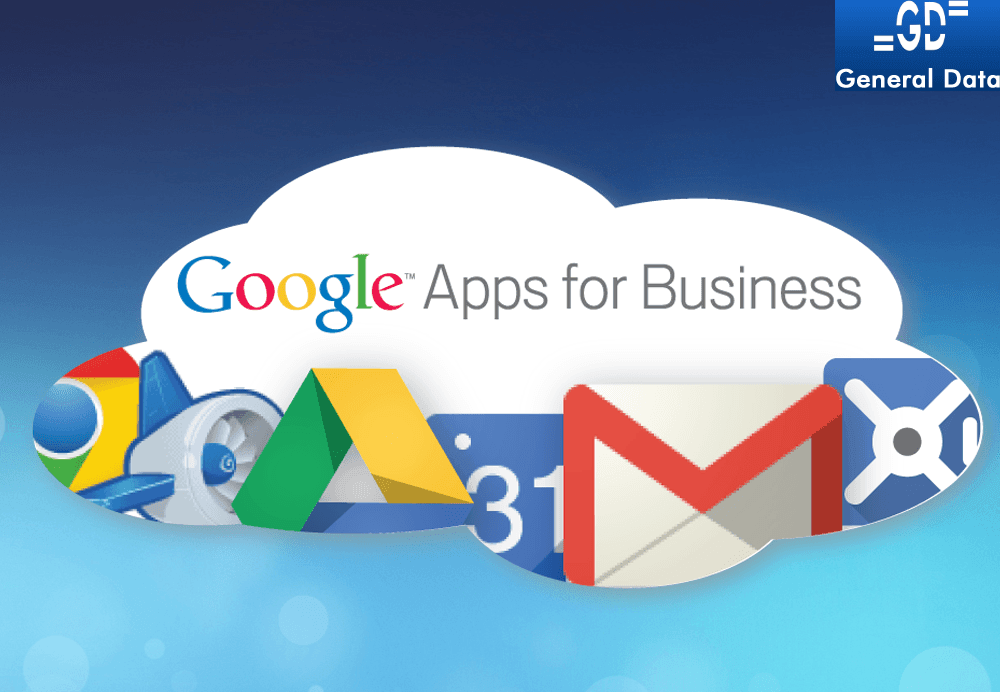
The benefits of Google Apps for Work are:
- Massive storage space of 30GB per email ID – more than sufficient for most setups. Upgradeable to Unlimited.
- Advanced and always-evolving Spam Filters to reduce spam mail, reducing time spent dealing with and deleting unsolicited mail
- True mobile compatibility – usable on the move from any smart mobile device
- Seamless migration from existing solution with the help of Google Apps for Work Partners like General Data P. Limited
- Very easy to adapt to, virtually no learning curve to begin using Gmail and other Google Apps
- Very safe and secure solution with the latest encryption standards & HTTPS secure connections
Google’s business email pricing falls in line with what most businesses – small or big – would budget. Rs 150/user/month (India pricing May 2015) gives you access to all the core apps and tools, while $10/user/month adds on even more features like unlimited storage, mail archival and discovery, audit reporting, advanced mail and administrative policies, etc.
General Data is an authorized Google Apps reseller in India that can help you understand how to migrate to Google Apps from your existing solution, select the right Google Apps plan, enable Apps you require, and carry out end-to-end migration, implementation, initial setup and final handover. We have helped many companies implement Google Apps from scratch and replaced legacy setups with Google Apps seamlessly, with virtually no downtime.
In order to find out what Google Apps for Work can do for your business, do get in touch with a Google Apps for Work Partner like General Data Private Limited.
Business email, communication, collaboration, productivity has come a long, long way over the past few years. We don’t have to put up with slow business mail solutions, instant messaging applications that keep hanging, and local calendars we need to keep copying from and sending back and forth to synchronize meetings with other people. Also, we’re not restricted to incredibly small mailboxes measured in MBs or low, single digit GBs anymore.
Premium Business E-mail and productivity solution providers like Google have created amazing, intuitive solutions that take care of the above functions, and many more, seamlessly. Loading times are fractions of what they once were, always-on SSL encryption and single sign on (SSO) features have increased security multifold, and all this has become incredibly affordable. That’s why Google Apps for Work is used by over 5 million businesses worldwide – ranging from single-user professionals to social institutions, from SMEs to large global enterprises.
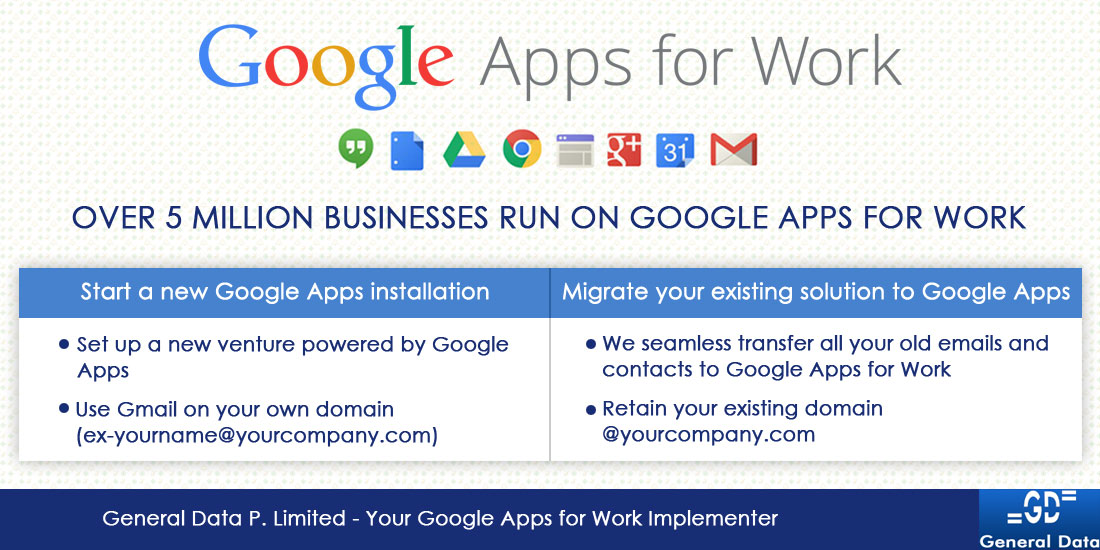
That’s where premium, authorized Google Apps for Work Partners and Resellers like General Data P. Limited come in. We’re enlisted to help you make a seamless transition to Google Apps for Work, and help you make the best use of the solution for all your business needs.
A growing need
More and more companies are approaching resellers to swap their outdated legacy technology for the latest offerings, like Google Apps for Work. With 99.99% uptime, you know your email and collaboration service will never adversely affect your business due to downtime.
Justifying the need
Google’s suite of business applications undertakes and executes essential productivity functions in any business. The packages offered by resellers help reach an array of audiences in remote corners of the world- a feat that might otherwise be impossible to achieve.
App Service
Google app resellers like us come with the promise of offering the latest,comprehensive suite of business apps and an assurance of being able to satiate diversified, complex needs with just one arrow from the quiver. Speed, reliability, security, storage space are all in the palm of your hand. We help you get the best out of the solution.
The Product
At the core of Google Apps for Work is Gmail - which uses high-end spam filters and storage infrastructure specially developed for professional & business use. The apps also include specialized provisions for creating, storing as well as sharing information among the members of a business family with the help of technology. There is a heavy emphasis on collaboration and synchronization of information. It’s also compatible with most devices & operating systems available today, which is a great feat considering just how many there are.
Google Apps for Work instills a sense of confidence in users, that this one single point of login enables them to do so many things. General Data P. Limited is an authorized Google App Reseller based in Mumbai but doing Google Apps implementations all over India. To learn more about Google Apps for Work, click here or get in touch with us.
ASG-TrackBird™
for Intelligent IT Asset Management
Strategic audit planning is one of the foundations of effective IT hardware and software asset management. ASG-TrackBird™ helps you manage this time-consuming effort by scanning your networks to discover workstations, servers, and devices. It then deploys inventory agents to the workstations and servers, collects hardware and software information, and monitors inventory progress.

ASG-TrackBird Inventory automatically identifies workstations that have an agent installed and active and indicates when the collection of information is complete. If no agent exists on a workstation, one can be deployed with a just a few clicks. ASG-TrackBird Inventory can help you manage procurement by analyzing how hardware and software are deployed, what versions exist that need upgrading, and what configurations need to be retired and replaced.
ASG-TrackBird Inventory also works with temporary standalone devices, such as laptops, by collecting inventory audit information when devices are disconnected from the network and automatically transferring the information to the ASG-TrackBird Asset Repository at the next LAN/Internet connection. This is completed with minimum impact to the network traffic; files are less than 8 KB.
ASG-TrackBird SNMP scans your network and updates the TrackBird Asset Repository with information about SNMP-compliant devices. This permits the association of manageable hubs and switches with workstations.
ASG-TrackBird Monitoring collects software usage information and stores it in the ASG-TrackBird Asset Repository, helping you identify underutilized software deployments, manage license compliance reviews, and reclaim unused software licenses for deployment in other parts of the organization.
Managing IT assets effectively is an ongoing process. ASG-TrackBird Policy provides an overview of the information necessary for managing desktops on the network. ASG-TrackBird Policy applies internal IT policies to the inventory data gathered by other ASG-TrackBird components to discover abnormal configurations or uses of desktop devices (including unauthorized software installation, outdated anti-virus programs, or excessive CPU usage). An indispensable tool in tackling software piracy, ASG-TrackBird Policy can reduce total cost of ownership (TCO) through efficient policy management and by aligning workstation configurations with end-user requirements.
Features at a Glance
- Reduces software licensing costs through instant, extensive application audits.
- Formulates cost savings by providing extensive knowledge of hardware and software inventories.
- Reduces business risks associated with the installation of unauthorized software and nonconformance to software license agreements.
- Affords better maintenance contract negotiations using factual information about desktop-distributed hardware and software configurations.
- Manages and controls internal equipment moves by providing the location and user of every desktop.
- ASG-Discovery and Dependency Mapping (ASG-DDM) for finding the components of IT and business services and the dependencies between them.
ASG-Discovery and Dependency Mapping (ASG-DDM)™ automatically monitors and reveals the relationships between business services, the underlying complex applications, and supporting components across the enterprise. In addition to helping organizations ensure application availability, ASG-DDM fosters understanding of how applications and dependencies impact IT and business services and supports many important infrastructure and service support initiatives like release management, change and configuration management, incident and problem management, compliance and audit trails, cost control and charge back, disaster recovery, dynamic provisioning, and service level management (SLM).
ASG-DDM’s automated discovery and dependency mapping dramatically reduces the time to map business service to infrastructure dependencies. ASG-DDM discovers both packaged and custom application dependencies distributed platforms, and leverages existing investment by utilizing business process modeling work already completed.
Powerful drill-down capabilities within ASG-DDM provide a deep level of understanding within an application and IT infrastructure that includes application system and application configurations and dependencies. This enabling technology provides a powerful communications bridge between service support, operations, and applications teams. It provides extensible out of the box graphs, queries, and reports which enable service support and operational use cases.
ASG-DDM is part of an open, flexible solution set that is easy to integrate within existing service support and I&O information systems. This enables customers to mix and match solutions as they make sense and continue to leverage their existing technology investments, with no “rip and replace” required.



